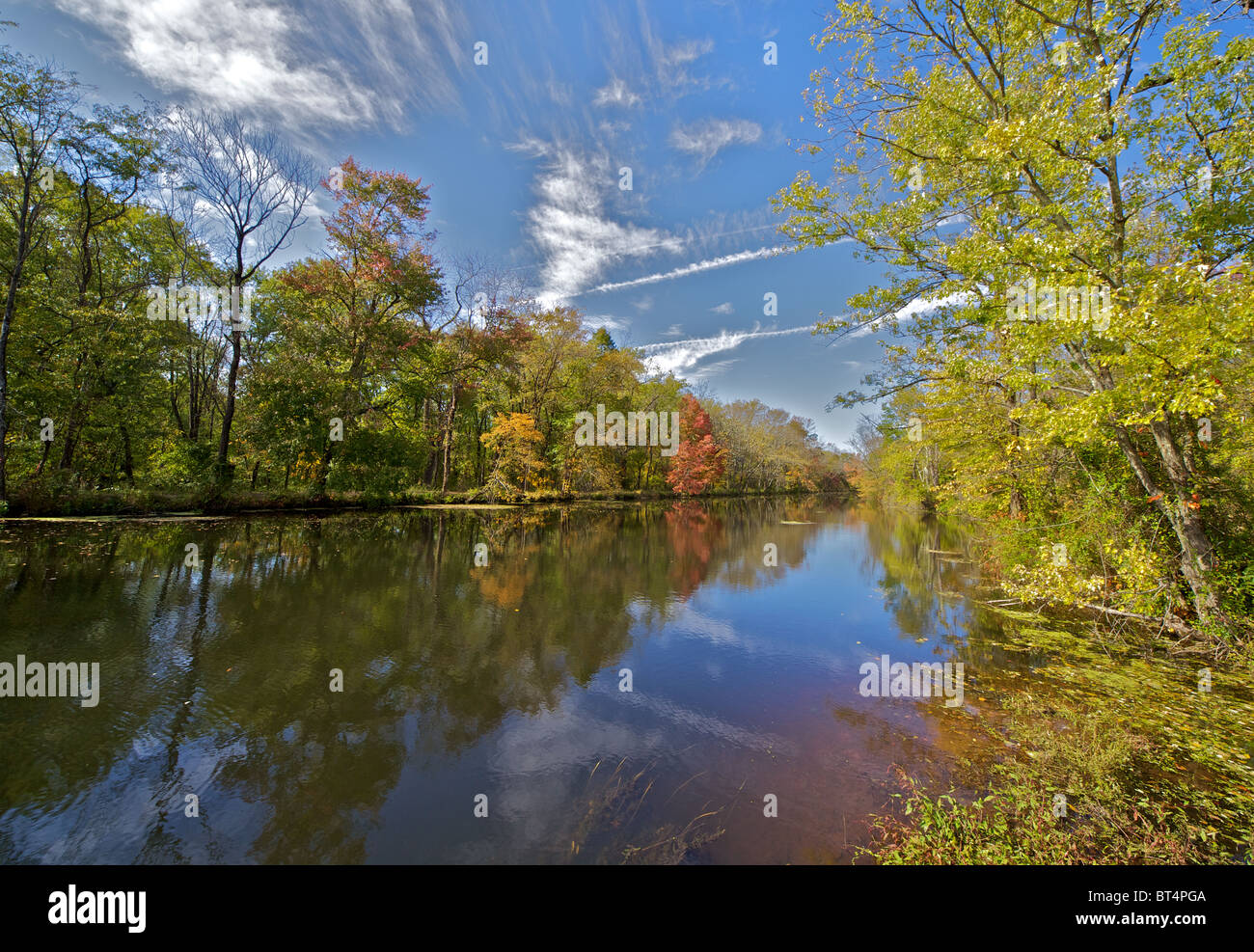Delaware and Raritan Canal (D&R Canal)

Image details
Contributor:
David Letts / Alamy Stock PhotoImage ID:
BT4PGAFile size:
47.8 MB (3.7 MB Compressed download)Releases:
Model - no | Property - noDo I need a release?Dimensions:
4923 x 3397 px | 41.7 x 28.8 cm | 16.4 x 11.3 inches | 300dpiDate taken:
17 October 2010Location:
Somerset, New Jersey, USAMore information:
Building the Canal Most of the D&R Canal system remains intact today and is a reminder of the days when the delivery of freight depended upon a team of mules or steam tugboats. Thirty-six miles of the main canal and 22 miles of the feeder canal still exist, with many historic structures along its entire length. During the early nineteenth century, when the United States entered into the industrial revolution, canals were built as transportation routes to link resources, manufacturing centers and markets. The D&R Canal was built across central New Jersey to provide an efficient and safe route for transporting freight between Philadelphia and New York. Since boats could navigate the Delaware River to Bordentown and the Raritan River to New Brunswick, those two cities were selected as the canal's two terminuses. To supply water to the main canal at its highest elevation in Trenton, a feeder canal was dug from Bull's Island on the Delaware River south to Trenton. Construction of the D&R Canal began in 1830. Laborers - the majority of whom are believed to have been migratory Irish immigrants - were hired to dig, mostly by hand, the main canal and its feeder. The main canal was 44 miles long, 75 feet wide and 7 feet deep. The feeder was 22 miles long, 50 feet wide and 6 feet deep. The canal system was completed in 1834 at an estimated cost of $2, 830, 000.